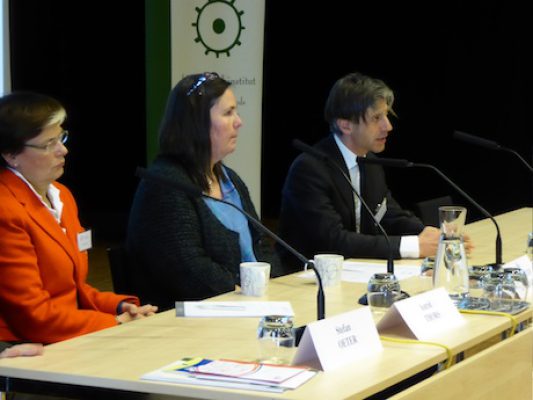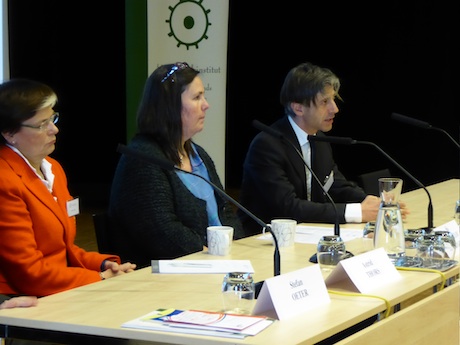The Advisory Committee was well represented , both in the audience as well as in front of the microphone. The president of the Advisory Committee, Mr. Francesco Palermo, held a keynote on the framework conventions’ importance and the coming challenges for the Advisory Committee. The first vice-president of the Advisory Committee, Ms. Petra Roter, also held a keynote on the challenges minority protection in Europe faces today in the context of nationalism and Europeanisation. Former presidents of the Advisory Committee, Mr. Alan Phillips and Mr. Rainer Hofmann, also contributed with keynotes.
{besps}/stories/minoritetsseminarium2015/|width=460|height=307|||ctrls=1{/besps}
The Council of Europe was represented on a high-level with Ms. Marja Ruotanen, Director of Human Dignity and Equality and Ms. Maria Ochoa-Llido, Head of Anti-discrimination and Social Cohesion Department taking part in the conference.
To answer the question wheter current minority protection is in a crossroad or not, voices from around Europe were heard. In addition to participants from the Council of Europe, representatives from OSCE, EU-instances, UN OHCHR and participants with excessive experience from working with minority protection around Europe. Finland was represented by the Ministry for Foreign Affairs of Finland and Sweden by the Ministry for Foreign Affairs of Sweden. The Finnish Human Rights Centre also participated with a keynote and as audience.
The OSCE High Commissioner on National Minorities, Ms. Astrid Thors, contributed with a profound keynote on how minority protection can prevent conflicts and the High Commissioner’s role in conflicts where national minorities are affected or involved. Minority protection in conflict areas and in changing contexts was discussed by representatives from the OHCHR, the Finnish Human Rights Centre and academics and practitioners with experiences from conflicts where minorities are affected. The areas that were focused on were Ukraine (in particular Crimea), Georgia, Abkhazia and South Ossetia.
The conference lasted all day and finished with a keynote by Mr. Stefan Oeter, professor in international law at Hamburg University. His keynote highlighted the importance and the role of monitoring organs in order to ensure effective minority protection in Europe. In the panel discussion that followed the importance of independent and impartial monitoring organs in order to ensure the most effective minority protection was discussed. Mr. Rainer Hofmann, professor in international law at Frankfurt University and Ms. SiaSpiliopoulou Åkermark got the last word of the day with a concluding discussion.
The total number of participants at the conference was 85. Half of them coming from European organizations and the other half consisting of Finnish and Swedish participants, as well as Ålandic politicians and participants.
The audience was given the opporitunity to as questions and/or present thoughts to keynote speakers and panelists.




